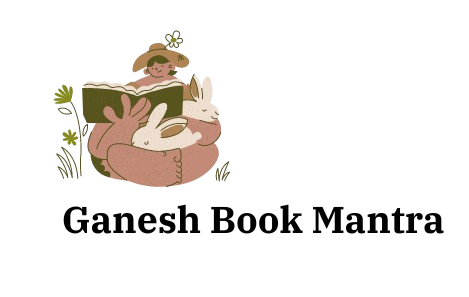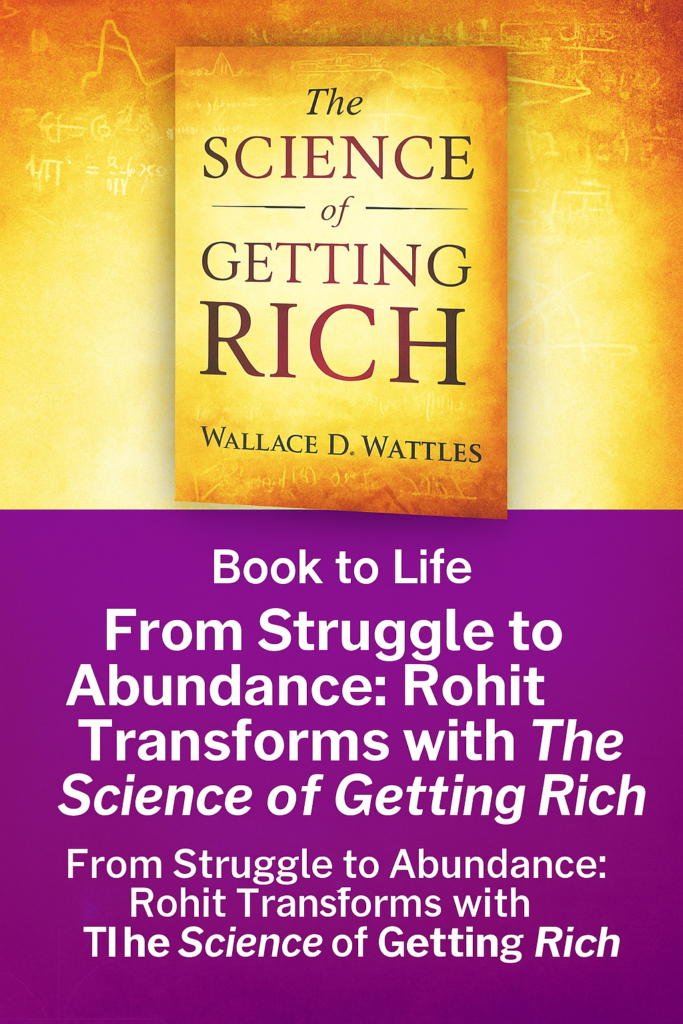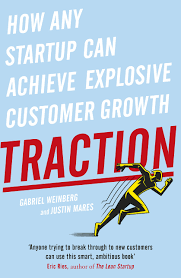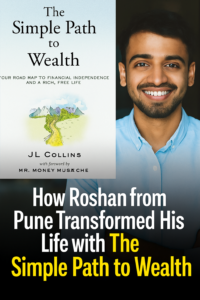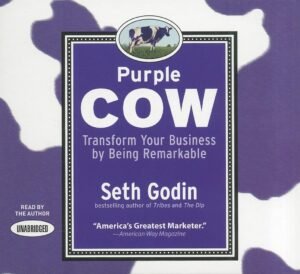The Story
Opening Scene: Rohit’s Struggles in the City of Dreams
Mumbai is often called the city of dreams, but for Rohit, it had become the city of endless struggle. At 29, he worked as a mid-level project manager in an IT firm. Every day began with crowded local trains, late-night client calls, and a constant feeling of running on a treadmill — moving, but never getting ahead.
His salary was good on paper, but between rent, EMIs, family responsibilities, and lifestyle expenses, he barely saved. Even worse, he felt a constant hollowness — as though despite working so hard, he wasn’t living the life he dreamed of.
He often asked himself: “Is this all there is? Is financial freedom just a myth in a city like Mumbai?”
This was Rohit’s life — until a chance discovery changed everything.
The Turning Point: Discovering The Science of Getting Rich
One Saturday afternoon, tired and restless, Rohit wandered into a secondhand bookstore in Fort. Among dusty stacks, his eyes landed on an old, tattered copy of The Science of Getting Rich by Wallace D. Wattles.
The title itself seemed too direct — almost audacious. He thought, “Science? Of getting rich? Can wealth really be learned, like physics or mathematics?”
Out of curiosity, he picked it up and began flipping through the first few pages. The line that struck him most was:
“The desire for wealth is simply the capacity for a larger life seeking fulfillment.”
Something inside him clicked. It wasn’t wrong to want more. Wanting to be rich wasn’t greed — it was the fuel to grow his mind, body, and soul. Rohit bought the book for ₹50, unaware that this small purchase would redefine his destiny.
Implementation Phase: Applying the Principles
1. The Right to Be Rich
Rohit’s first breakthrough came from understanding Wattles’ simple truth: living fully without money is nearly impossible. He stopped feeling guilty about wanting financial success. Instead, he reframed it as his duty to grow.
He made a journal entry: “I deserve to be rich. Not for luxury, but for expansion — to live fully and to help others.”
2. Thinking in a Certain Way
Wattles emphasized that wealth creation starts in the mind. Rohit realized his thoughts had been trapped in scarcity: “Mumbai is too expensive,” “Opportunities are for the privileged,” “Maybe this is the best I can do.”
He replaced these with affirmations and visualizations. Each morning, before leaving for work, he spent 15 minutes imagining the life he wanted: a debt-free home, freedom from the corporate grind, and the ability to support causes he believed in.
Slowly, his thoughts shifted from complaining about lack to creating mental blueprints of abundance.
3. Gratitude as a Wealth Magnet
Initially skeptical, Rohit tried Wattles’ advice on gratitude. Instead of resenting his workload, he began thanking life for what he had — a steady job, his supportive parents, and even the city’s endless energy.
To his surprise, this small change reduced his stress. Gratitude made him focus on opportunities instead of obstacles. When a challenging assignment came, he stopped dreading it and thought: “This is my chance to grow.” His managers noticed — and his reputation began to rise.
4. Acting in the Present, Not Waiting for Tomorrow
Wattles wrote: “You must act now. There is never any time but now.”
Rohit realized he had spent years postponing ideas: business plans, investments, even skill upgrades. Inspired, he launched a weekend side hustle — offering digital marketing consulting for small local businesses. Instead of waiting for the “perfect time,” he simply started with what he knew.
Within months, he had three clients, and his extra income equaled nearly half his salary.
5. Creating, Not Competing
In his corporate job, Rohit often felt trapped in office politics. But Wattles’ words struck him: “You must get rid of the competitive mind. You must focus on creating.”
Instead of worrying about colleagues or rivals, Rohit poured energy into offering unique value in both his job and side business. He stopped chasing promotions and instead focused on solving problems creatively. Ironically, this attitude led to recognition and more opportunities — proof that creation beats competition.
The Breakthrough: Crossing the Financial Independence Point
The real turning point came two years later. By then, Rohit’s side business had grown steadily. He had built a small team and was earning more than his full-time salary.
But the cross-over point wasn’t just financial. It happened one evening when his father fell ill. Instead of panicking about hospital bills, Rohit calmly managed expenses, took time off work, and still saw his business generate income without him.
For the first time, money wasn’t a source of fear. It was a tool for freedom. Rohit realized: “I’m not chasing survival anymore. I’ve crossed into true independence.”
Life After Change: A Richer Existence
Today, at 34, Rohit runs a thriving digital agency in Mumbai. He owns a modest but debt-free apartment, has investments working for him, and — most importantly — chooses how to spend his time.
He still works hard, but it’s on projects he loves. He donates part of his earnings to support underprivileged students, fulfilling Wattles’ idea that getting rich allows us to expand life for ourselves and others.
Rohit’s friends often ask how he managed such a turnaround. He simply smiles and says, “I learned that wealth is a science, not luck. And anyone willing to apply it can succeed.”
Reflection: Rohit’s Advice to Readers
Rohit often reflects on his journey:
-
“Don’t feel guilty for wanting wealth. It’s your right and responsibility to grow.”
-
“Your thoughts create your reality. Train your mind to focus on abundance.”
-
“Gratitude is not fluffy talk — it’s practical. It opens doors where stress only closes them.”
-
“Act now. Don’t wait for perfect timing.”
-
“Create value. Don’t waste energy competing.”
Call to Action
Inspired by Rohit’s journey? This is just one story in our Book to Life series.
Pick up The Science of Getting Rich by Wallace D. Wattles today and take the first step toward your own transformation. You don’t need luck, privilege, or special talent — just the willingness to think, act, and grow in a certain way.
Your journey to abundance starts now.
Disclaimer
This story is hypothetical and created for the sole purpose of illustrating how one might apply the concepts from The Science of Getting Rich in real life.
